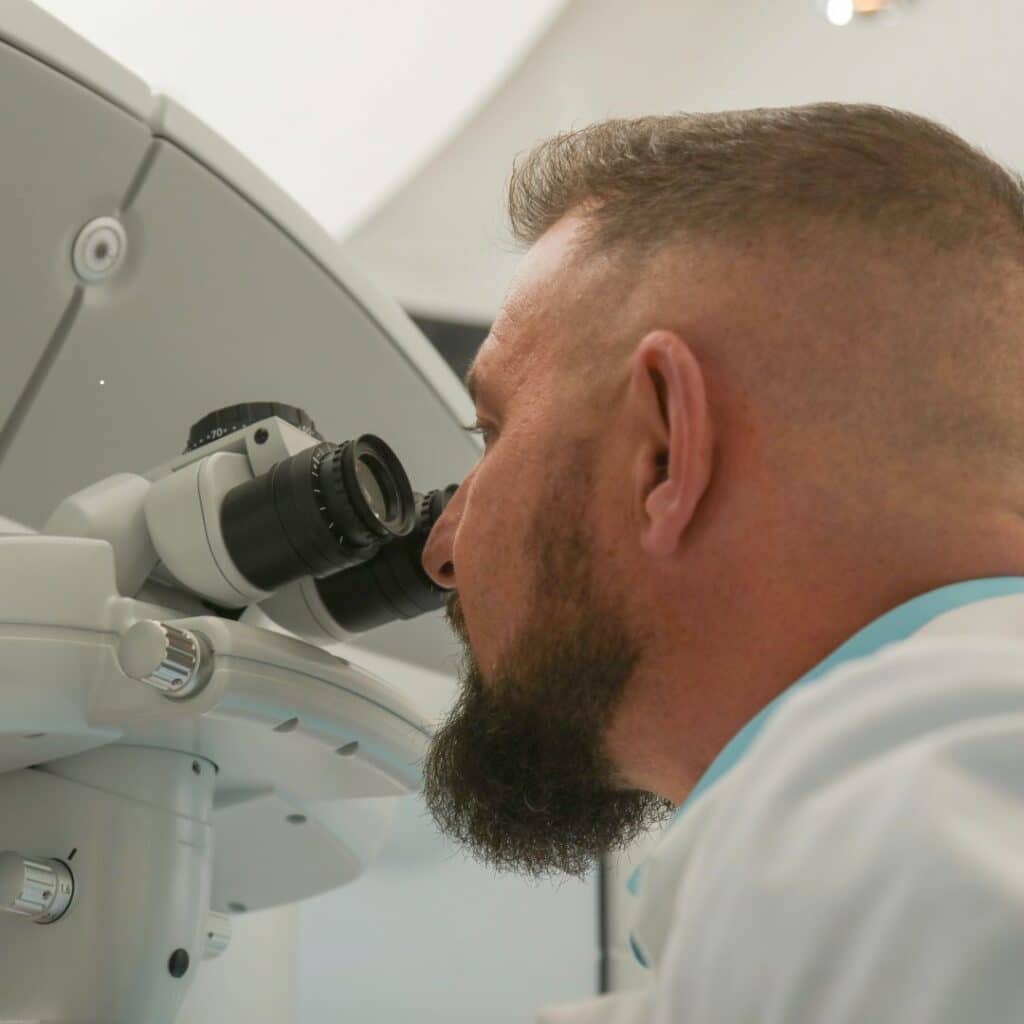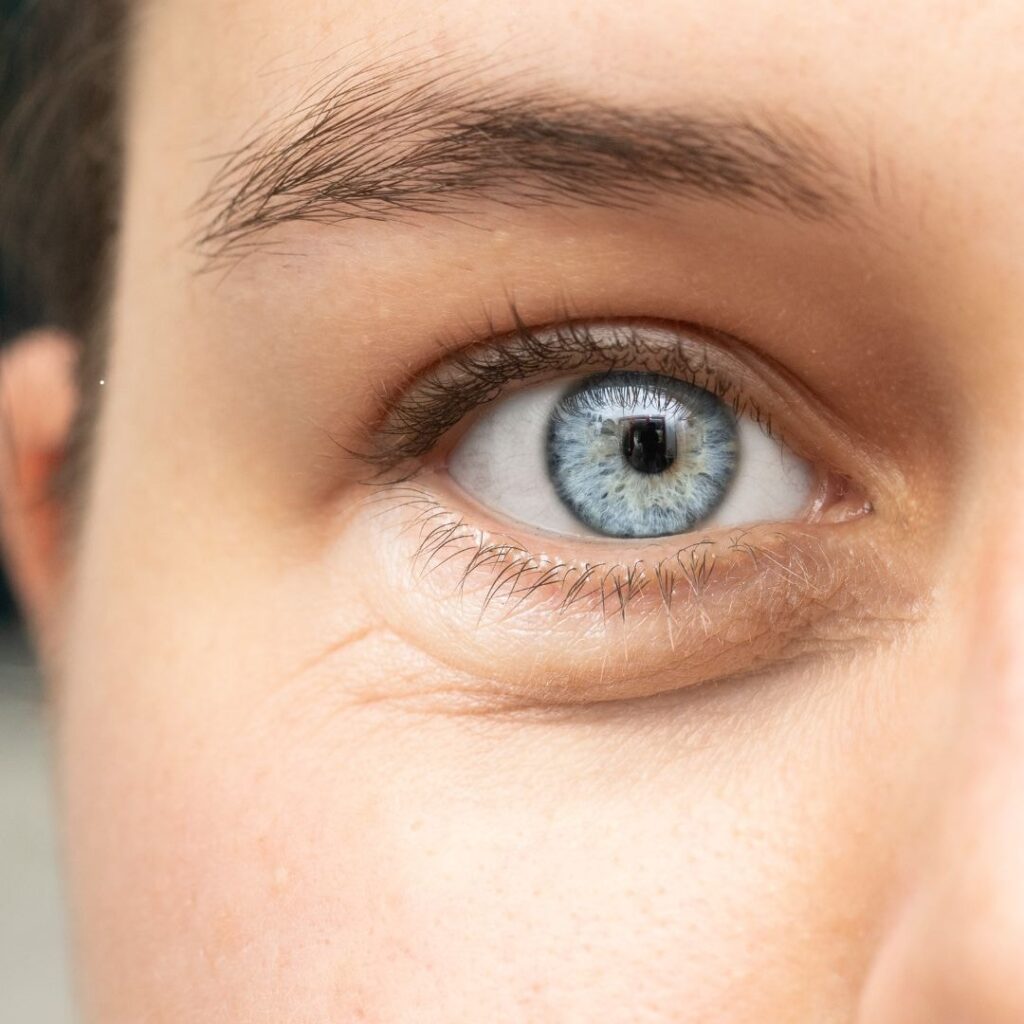Ever squinted at a whiteboard and found the lines look more like a blurry, wavy ocean than straight lines? Or start the day with a clear vision, only to have it devolve into a blurry mess by the end? If you're nodding along, you might have astigmatism and not even know it. But don't worry—you're far from alone. In fact, astigmatism affects about one in three Americans, making it a common vision condition.
Now, you might be asking, "What's the fix?" Thankfully LASIK surgery is the modern miracle we need to correct astigmatism. LASIK, which stands for Laser-Assisted In Situ Keratomileusis, is a type of surgery designed to correct vision issues like nearsightedness, farsightedness, and, you guessed it, astigmatism. It's all about precision—using a highly specialized laser to reshape the cornea, thus improving how your eye focuses light rays onto the retina.
In this article, we'll take a closer look at astigmatism, demystify LASIK surgery, and explore its role in treating vision imperfections. We'll also explore the question, "How much does LASIK cost for astigmatism?" By the end, you'll have a clearer view (pun intended) of how LASIK can turn your blurry world into a thing of sharp, vivid beauty, empowering you to make informed decisions about your vision correction options.
When it comes to LASIK, not all procedures or outcomes are created equal. Much like choosing a tailor for a bespoke suit, the choice of LASIK surgeon, technology, and even the clinic plays a pivotal role in the results. Here's a deeper look into those factors.
The surgeon's expertise is not just a matter of pride but a significant indicator of the success rate of LASIK procedures. Surgeons with extensive experience and a high number of successful surgeries under their belt tend to have lower complication rates. The reputation of a surgeon, often gauged by patient testimonials and peer recommendations, can also hint at the level of skill and knowledge. Essentially, a more experienced and reputable surgeon might charge more, but the investment often translates to better vision correction.
For example, here at TVLC, our team of LASIK surgeons boasts extensive experience and exceptional training, with each surgeon having performed many successful procedures. Additionally, our surgeons are recognized as some of the best in the industry, with numerous accolades and positive patient reviews.
Learn More About Choosing The Best LASIK Surgeon For Your Unique Needs!
The adage "You get what you pay for" rings especially true in the world of LASIK surgery. The field of vision correction is rapidly evolving, with advancements in laser technology leading to safer, more efficient, and more precise procedures. A clinic that invests in the latest equipment, such as the femtosecond laser for creating the corneal tissue flap, may charge more but can offer a higher success rate and reduced risk of complications.
The geographical location and the prestige of the clinic also play a significant role in determining the cost of LASIK. Clinics located in metropolitan areas or regions with a higher cost of living typically charge more due to higher overhead LASIK costs. Additionally, clinics with a prestigious reputation, often built on the success of their procedures and the caliber of their surgeons, might charge a premium. For example, here at Texas Vision & Laser Center, our facilities are equipped with state-of-the-art technology, and we pride ourselves on our renowned team of surgeons. As a result, our patients enjoy exceptional care and outcomes, making us a top choice for LASIK in North Texas.
Navigating the world of LASIK surgery costs can feel complex. Let's break down the various components that contribute to the cost of LASIK surgery, making it easier for you to understand where your investment is going.
Before you can even think about scheduling your LASIK procedure, you'll undergo comprehensive preoperative evaluations and consultations. These initial steps are crucial for ensuring you're a suitable candidate for the procedure. Expect detailed eye exams that assess everything from your corneal thickness to your eye's refractive errors. Meticulous preoperative evaluations can significantly enhance the success rate of LASIK by identifying potential risks and tailoring the surgery to your specific needs. While these evaluations add to the overall cost, they are fundamental in mapping out a safe and effective surgery plan.
The surgical fees encompass the cost of the actual laser eye surgery procedure, which includes the time and expertise of the surgeon as well as the use of laser technology. Given the high stakes of working with such delicate organs as the eye, not to mention the precision required, it's understandable why this makes up a substantial part of the cost.
Facility fees cover the costs associated with the use of the clinic's premises, including the operation room, and the extensive array of medical devices and instruments required for the surgery. These fees also help maintain a sterile and safe environment, crucial for preventing infections and ensuring a successful procedure. Facilities equipped with the latest technology often have higher fees, but as medical research suggests, the advancements in technology have significantly reduced the risk of complications post-surgery, making this a worthwhile investment.
After the surgery, the financial considerations don't end. Postoperative care, including follow-up visits, medications, and any necessary treatments to handle side effects or complications, also contributes to the overall cost. Effective postoperative care is essential for ensuring the health of your eyes and the longevity of your vision correction.
When it comes to the out-of-pocket expense of LASIK surgery, prices can vary widely depending on a number of factors — from the technology used to the experience of the surgeon. On average, you might expect to shell out anywhere from $2,000 to $3,000 per eye.
However, if you're worried about the cost of LASIK, good news! TVLC offers financing options to help patients manage the overall cost. TVLC offers flexible financing options, and we can assist you in utilizing your Flexible Spending Account or Health Savings Accounts. We have also partnered with CareCredit and Alphaeon for quality and reputable outside financing.
Astigmatism often raises questions in terms of LASIK surgery cost. Many individuals wonder if having astigmatism could lead to a higher price tag on their vision correction journey. The truth? LASIK cost isn't determined by the type or severity of your refractive error. Whether you're nearsighted, farsighted, or have astigmatism, the cost remains uniform and is primarily calculated per eye.
This approach ensures fairness and simplicity in understanding the financial aspect of LASIK. It's like ordering glasses or contact lenses; you wouldn't expect to pay more based on your prescription's complexity. The focus is on providing you with the best possible outcome for each eye, not adjusting the price based on the challenges your unique eye shape presents.
It's clear that while the overall LASIK eye surgery cost might initially seem like a maze of numbers and technical jargon, understanding the breakdown can demystify the process. Remember, investing in LASIK is not merely paying for a procedure; it's investing in a future of clearer vision and improved quality of life. And for those navigating the world with astigmatism wondering about their pathway to clear vision, fear not. At Texas Vision & Laser Center, we're equipped to turn your dreams of sharp, unaided vision into reality, regardless of your refractive error. Our team is here to guide you through every step, ensuring a smooth and informed LASIK experience designed to best suit your eyes.
Learn More About How We Can Help You See Things Clearly!



